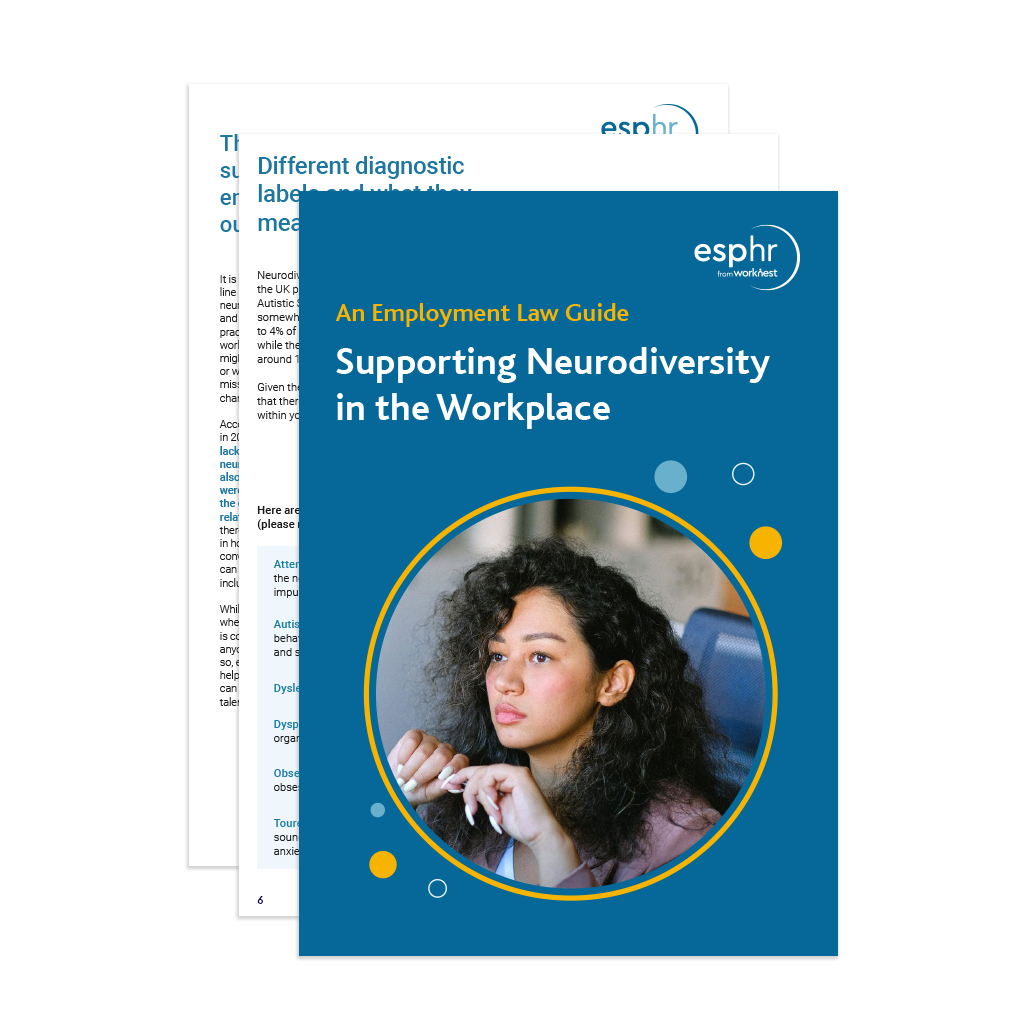The corporate world has made significant strides in promoting diversity and inclusion in recent years, particularly with the millennial and Gen Z generations being the most diverse in history. However, the topic of neurodiversity still tends to go under the radar. In fact, according to the National Autistic Society, just 16% of autistic adults in the UK are in full-time paid employment and only 32% are in some kind of paid work.
The common perception is that this stems from a rigid stance on what makes a ‘successful’ employee. The concept is often associated with attributes such as communication skills, emotional intelligence, and the ability to ‘fit in’ to the workforce.
With the surge in neurodiversity awareness in the UK, due to a significant increase in autism diagnoses over the past two decades, HR professionals and employers have a golden opportunity to demonstrate how they can break the mould and foster a culture of neurodiversity in their organisation.
Recruitment Practices and Neurodiversity
While a culture of neurodiversity acceptance is the end goal, this cannot be achieved without neurodiverse employees playing an active part in the workforce. Organisations must therefore turn to acquisition as a first port of call.
This is particularly important given that, in many cases, recruitment processes are naturally weighted against neurodiverse candidates.
For example, artificial intelligence (AI) is a powerful tool in recruitment, but it has been found to unfairly disadvantage candidates who don’t fit a specific profile. Even organisations with the best intentions can fall into this trap, underscoring the importance of hiring teams being diligent in configuring and auditing these processes.
This diligence is equally vital in manual recruitment processes, as human hiring managers can also exhibit unconscious biases. To address this, the core values of equality and objectivity should be integrated into every stage of the process. The exact nature of the individual stages is where flexibility becomes another key value. For instance, a traditional face-to-face interview may not be a comfortable or productive environment for an autistic candidate.
In recruitment, the organisation must always make reasonable adjustments where necessary and applicable. This will enable the candidate to perform in a manner that allows them to showcase their strengths and personality to the fullest extent.
Fostering a Neurodiverse Culture
The employee experience is crucial, and while diversifying the workforce is an essential step, the real challenge lies in creating a culture that not only embraces but actively promotes and supports neurodiversity.
Given the complexity of conditions like autism, effective management plays a critical role. While individuals with such disorders can sometimes come across as, for instance, abrupt or aggressive, managers who have undergone proper neurodiversity awareness training can better recognise and handle situations in a more practical manner.
By doing so, not only can conflicts be resolved more efficiently, but the acknowledgement and understanding foster a sense of acceptance and appreciation among neurodiverse employees, leading to improved engagement and performance. According to research by Deloitte, businesses that provide mentors to professionals with a disability reported a 16% increase in profitability, 18% in productivity, and 12% in customer loyalty.
The Work Environment
The working environment is another crucial aspect when it comes to neurodiversity. Hypersensitivity, for instance is a common characteristic in autistic individuals, so certain adjustments may be necessary to create a truly inclusive workplace.
Effective communication is also vital, considering the potential needs of autistic employees, whether in verbal or non-verbal interactions. Organisations can raise awareness among managers and colleagues so they are trained on how to handle these situations more effectively.
Regardless of the specific challenges, a key requirement is to engage with autistic employees, as well as outside expert agencies, in order to make reasonable and necessary adjustments which are effective. Over time, an organisation’s commitment to creating a supportive environment for neurodiverse employees will lead to their success and happiness.
Appreciating the Value of Neurodiversity
While compassion remains paramount and the main driving force, embracing neurodiversity also brings potential competitive advantages for organisations.
Stigma has led some to perceive the characteristics of autism and other neurodivergent conditions as flaws. However, from a different perspective, these traits could offer particular strengths. For example, autistic individuals may excel in rule-based thinking – the need to act on principles rather than consequences. Depending on the nature of the organisation, this can be an invaluable asset.
Moreover, the significant unemployment rate of the UK’s autistic population (68%) highlights an untapped talent pool for British organisations. By adopting an objective and inclusive approach to recruitment, employers can access high-quality talent.
Beyond this, diversity in all its forms fosters innovation and creativity by bringing a broader range of experiences and perspectives to the forefront, which in turn contributes to a positive work environment with greater employee satisfaction and engagement.






